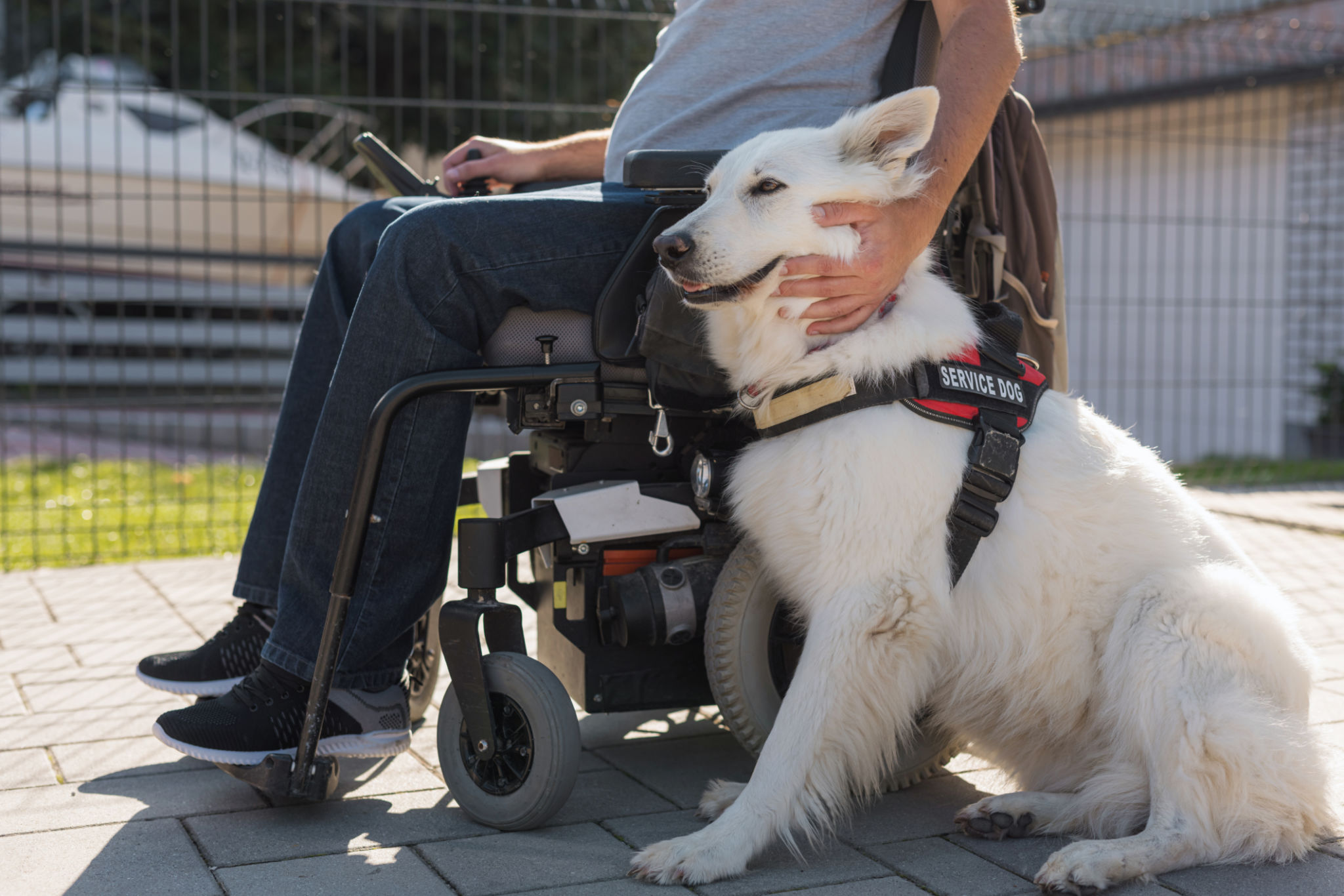Debunking Myths About Psychiatric Service Dogs
Understanding Psychiatric Service Dogs
Psychiatric service dogs are specially trained to assist individuals with mental health conditions. These dogs perform specific tasks to help mitigate the symptoms of psychiatric disorders such as PTSD, anxiety, and depression. Despite their increasing presence, there are still many misconceptions surrounding these invaluable service animals.

Myth 1: Psychiatric Service Dogs are Just Pets
One common myth is that psychiatric service dogs are merely pets. This is far from the truth. Unlike emotional support animals, psychiatric service dogs undergo extensive training to perform tasks that directly aid their handler. This includes retrieving medication, providing grounding during anxiety attacks, and even waking someone from a night terror.
The distinction between service dogs and pets is crucial. While pets offer companionship, service dogs are working animals that have a critical role in maintaining their handler's well-being. Their work is recognized under the Americans with Disabilities Act (ADA), granting them access to public places where pets are typically not allowed.
Myth 2: Any Dog Can Be a Psychiatric Service Dog
Another misconception is that any dog can be trained to be a psychiatric service dog. In reality, not all dogs possess the temperament or aptitude required for service work. Specific breeds are often chosen for their intelligence, calm demeanor, and ability to remain focused in various environments.

The process of becoming a service dog is rigorous and requires professional training. It's important for prospective handlers to work with reputable trainers or organizations that specialize in psychiatric service dogs to ensure their dog can reliably perform the necessary tasks.
Myth 3: Psychiatric Service Dogs Don't Need Training
Some believe that psychiatric service dogs do not require formal training. However, these dogs must learn to respond to specific cues and perform tasks that assist their handler effectively. Training includes obedience, public access skills, and task-specific actions tailored to the handler’s needs.
Training a psychiatric service dog is time-intensive and requires patience and consistency. It often involves both the handler and the dog attending sessions with a professional trainer to ensure a successful partnership.

Myth 4: Psychiatric Service Dogs Are a Cure-All
While psychiatric service dogs provide significant support, they are not a cure for mental health conditions. They are part of a holistic treatment plan that may include therapy, medication, and other interventions. These dogs help manage symptoms and improve quality of life but do not replace professional medical care.
It’s important for individuals considering a psychiatric service dog to have realistic expectations about what these animals can provide. They are valuable allies in managing daily challenges but should not be viewed as a standalone solution.
The Impact of Psychiatric Service Dogs
Despite the myths, psychiatric service dogs have a profound impact on their handlers’ lives. They provide not only practical assistance but also emotional support and companionship. Handlers often report increased independence and confidence thanks to their service dog’s presence.
As awareness grows, it’s essential to continue educating the public about the true nature of psychiatric service dogs. Understanding their role helps reduce stigma and supports those who rely on these remarkable animals for assistance.